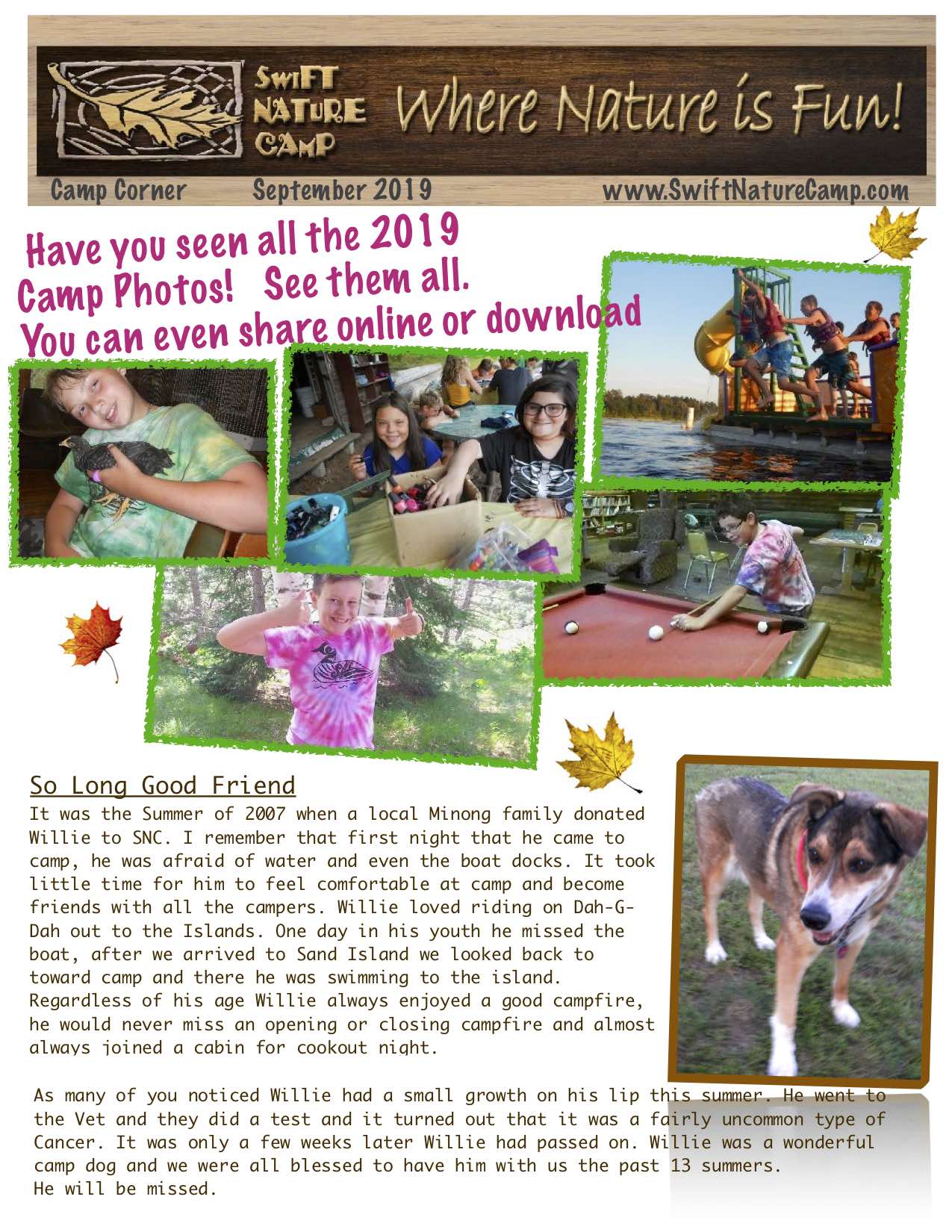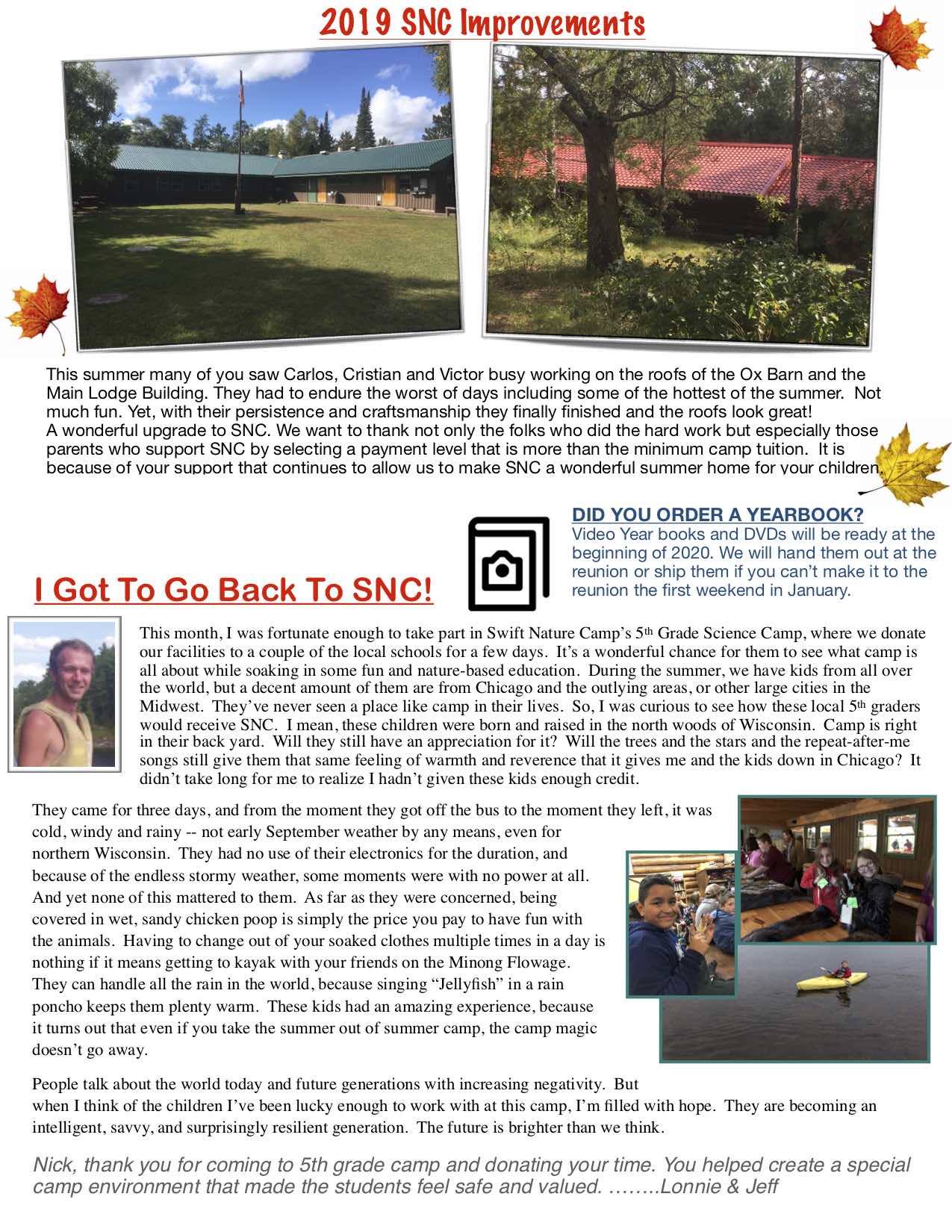Camp Newsletter & Reunion Information
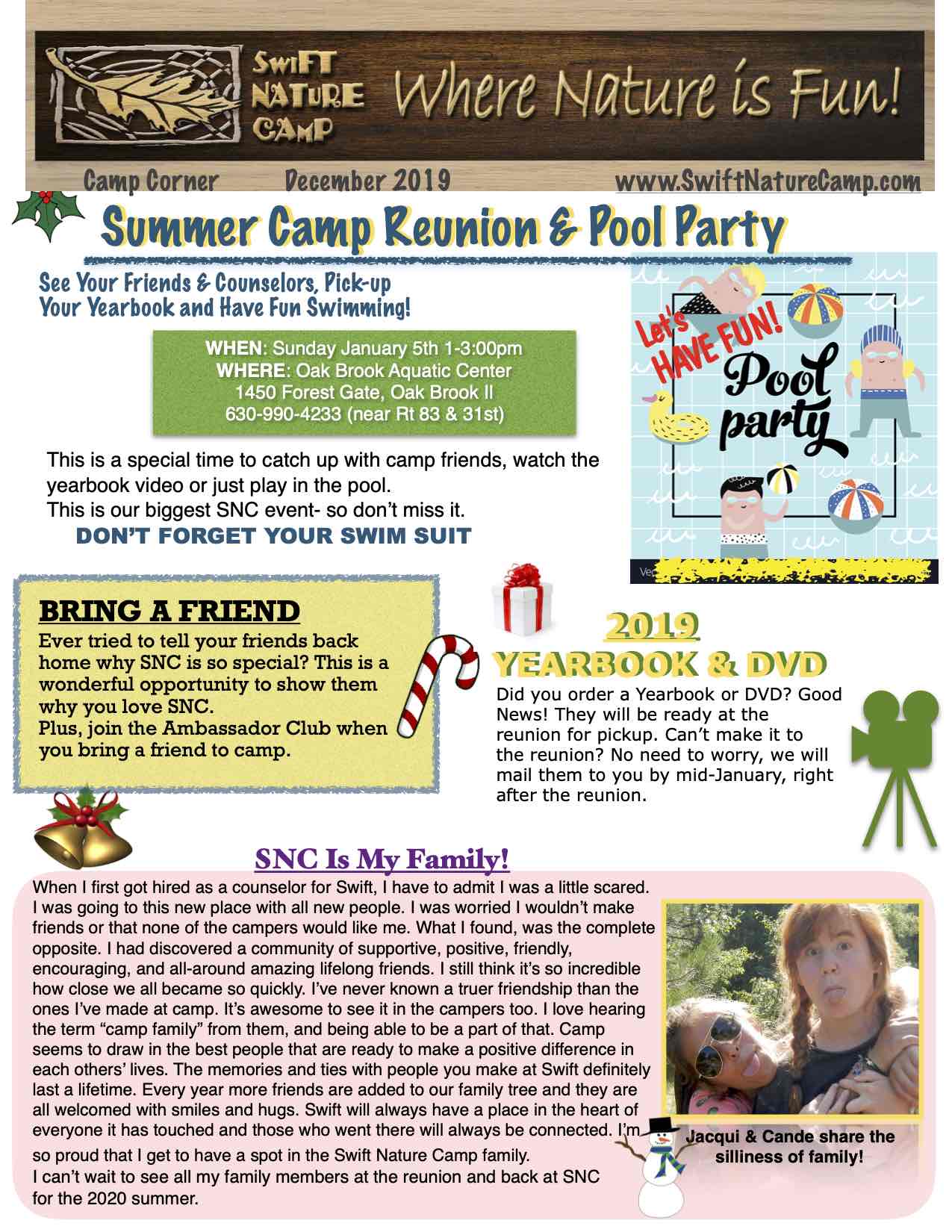
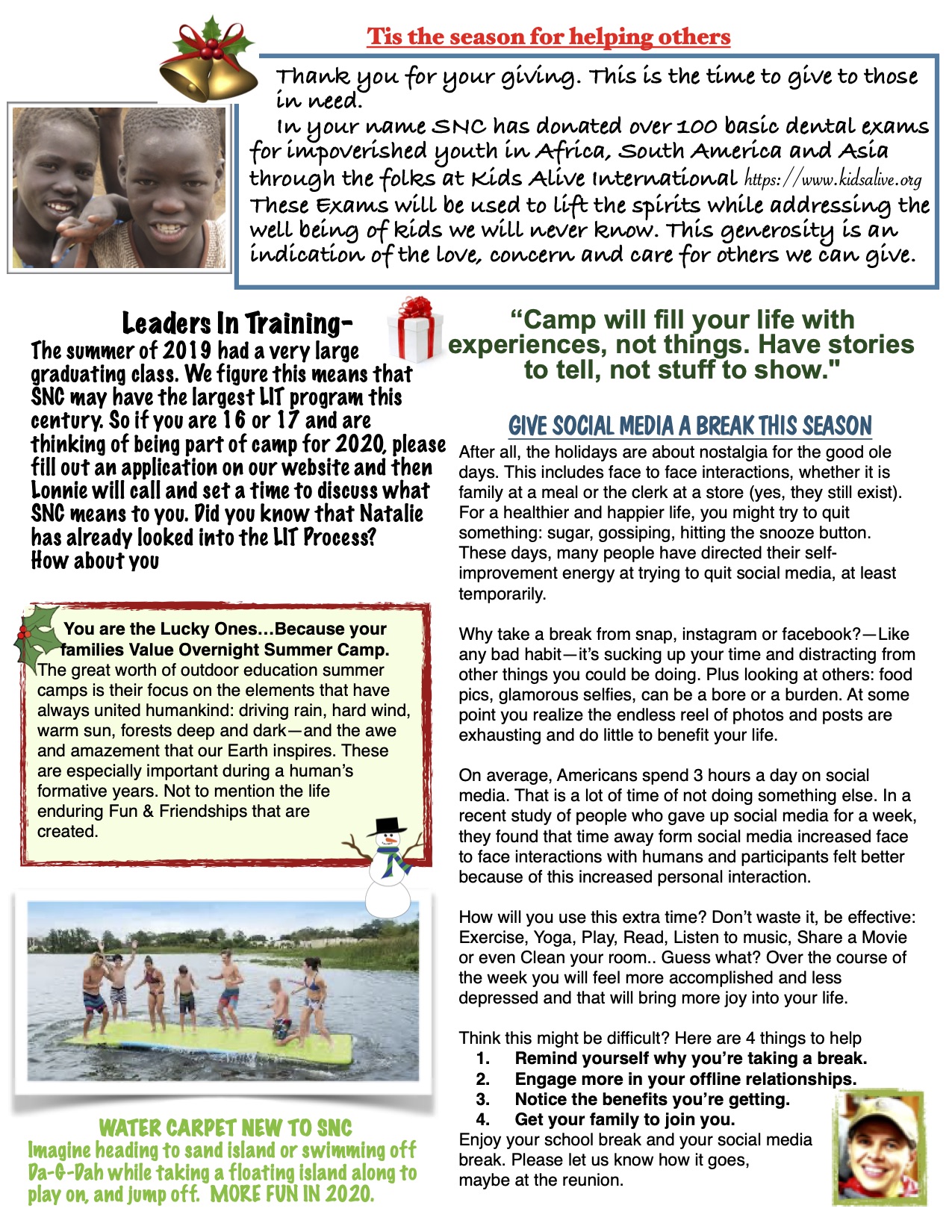
Recently, I was wondering why after 25 years of overnight summer camp we are still relavent to society. Of course, it came down to relationships in particular or camp staff. They are a great bunch of young adults that come to camp for all the right reasons and the right mindset. Then I ran accross this article by Mike McClary and it made things much more clear. Summer camp is a place where everyone is valued and we are all held to a higher standard. A standard that is not about ourselves as much as it is about others. When creating this environment it requires all agree to this mindshift. Camp is a much easier place to have this happen than out in the world. In the past I have asked staff why they return to camp and I have often heard "Camp makes me a better me". When you have staff feeling this way it is bound to filter down to the campers at camp.
The below article is a great way to move closer to living camp everyday in our life
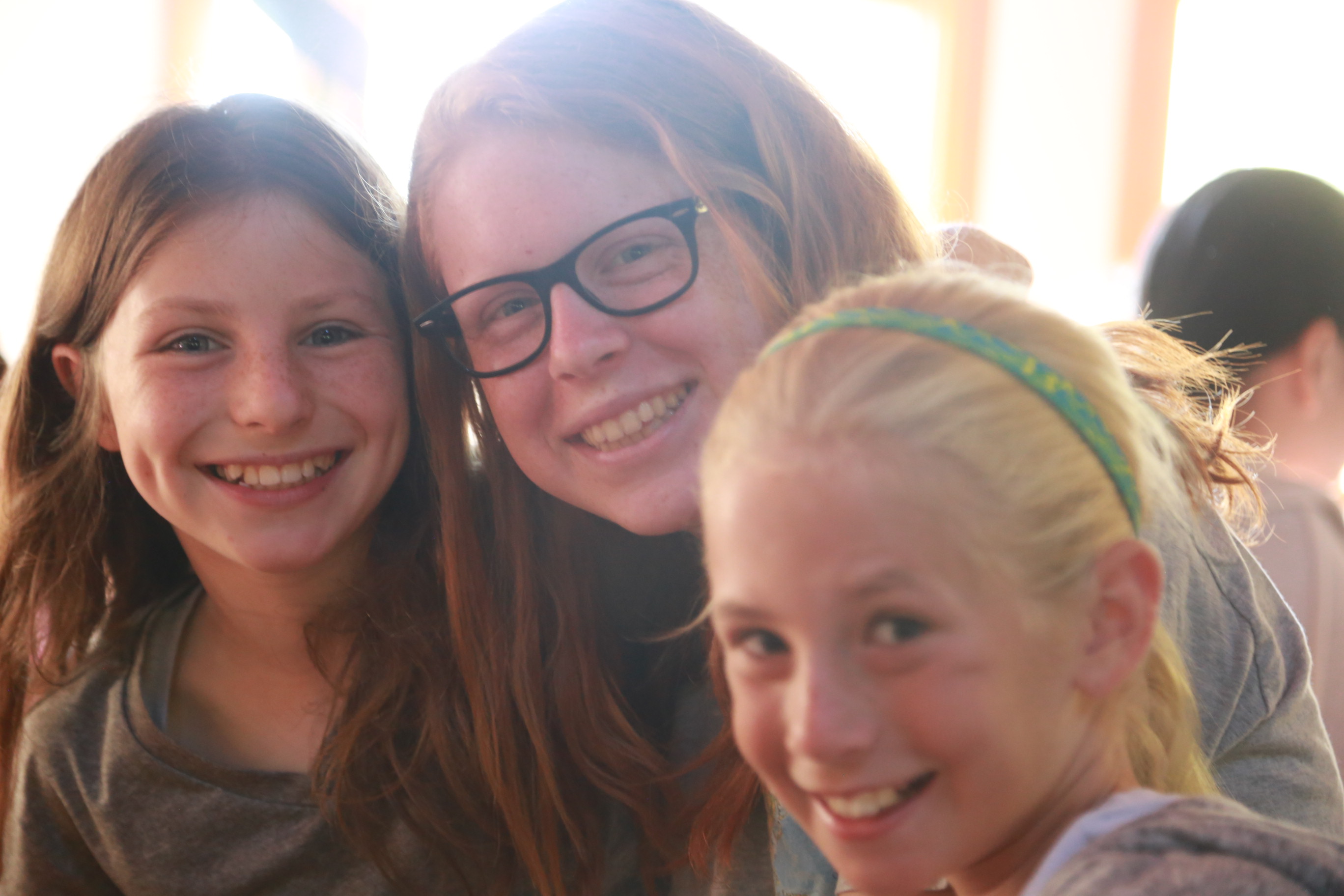
It defines your actions. Your thoughts. Your life.
Adopt the scarcity mindset, and you'll always be scared for what you have. And that you'll never get what you want. Scarcity has a way of holding you hostage and making you a victim.
If you adopt a success mindset, you'll see opportunities for growth everywhere.
So today, I'd like to share with you 9 tips to start developing a success mindset... starting today.
Tip #1: Start your day with positive affirmations
You are what you think.
And you think about what you teach your mind to focus on.
So if you start your day focusing on the positive things about yourself, your mind will grow a habit of thinking about positive things.
Tips #2: Read/listen to inspiring stories each day
Historian Thomas Carlyle once said that: "History is nothing more than a collection of biographies belonging to great people."
And those people had the right mindset.
Spend at least one 30 minutes each day reading their biographies. Listening to videos about them. Listen to their podcasts.
Let some of that awesomeness transfer to YOUR mind.
Tip #3: Accept the fact that perfection is impossible
There's no such thing as being perfect. At anything.
In fact, I’ve found that perfection is the enemy of profit.
And if you constantly try to reach perfection, you'll never be satisfied and happy.
OR, you will never take a task to completion.
Do your best.
More often than not, it'll be enough.
Remember that there is a law of diminishing returns that comes into play.
Tip #4: Meditate
Calm your mind.
Clear your thoughts.
Get to know yourself.
Many great ideas came to life thanks to the process of meditation.
Tip #5: Learn to say NO - and stick to it
Energy, time, and focus drainers are everywhere.
So are many temptations and shiny objects.
If you say YES to any of them, you're taking a step away from your goals.
Learn to say NO. And keep your focus on what you truly want.
Tip #6: Turn failures into lessons
In every failure, there's a lesson.
Why it happened. What did you missed. What can you do to prevent it from happening the next time.
And if you can learn a lesson, then it wasn't a failure at all.
It was a teaching moment.
Like Edison said: "I haven't failed 20,000 times. I found 19,999 ways how NOT to make a light bulb."
Tip #7: Surround yourself with success-oriented people
You are the average of the 5 people you spend most of your time with.
Do you want to get fit and go to the gym 3x a week?
Hang out with people who are fit and go 5x.
Want to be the best at what you do?
Surround yourself with people who are the best at what they do.
Surround yourself with people who'll lift you up.
Tip #8: Get a mentor/coach
Even the most successful people have coaches.
They help them stay focused and on track.
Find a mentor who'll keep you away from distraction and negativity.
Tip #9: Remind yourself of your past successes
Failure can distract you. A lot.
Some negative people can distract you. Significantly.
And that makes it easy to slide away into apathy and negative thinking.
Constantly remind yourself of your past successes.
And keep reminding yourself that you're capable for greatness.
At the Chicago Pet Show last weekend Bubba was a big hit with the locals.
Maybe thats why when campers want to be with animals over the summer they come to
our Animal Summer Camp.
Read the complete Chicago Tribune article
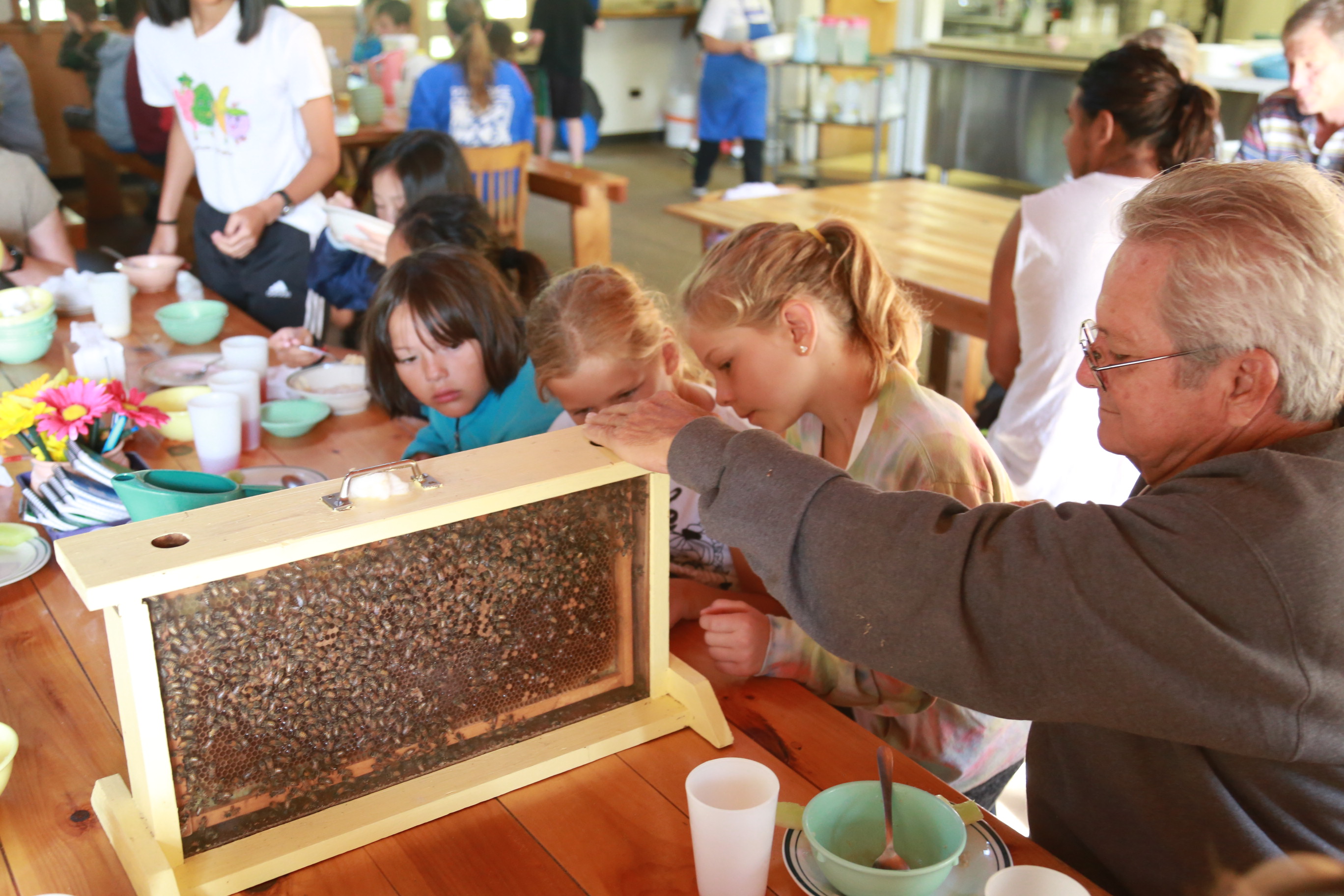
One of the magical things about Overnight Summer Camps is that it remains one of the last places where a kid can develop some grit. Grit is a difficult thing to define, but it’s impossible to miss when you see it. Grit is not just a way to describe a cowboy in the old west, and it is more than just falling off your bike, dusting off your knees, and hopping back on. Grit is being honest with someone even when it hurts. Grit is speaking in public on weak knees. Grit is the ability to overcome. Overnight summer campsare the perfect environment for this to emerge in someone because it provides so many safe and healthy opportunities to overcome our fears.
A lot of children share a basic and understandable fear of the unknown. Whether it’s sailing, starting a fire or going on an overnight camping trip, there are so many activities a kid will try at camp for the first time. There is a good chance they won’t be good at everything, and that’s ok. At Swift Nature Camp, a summer youth camp we aren’t afraid to let our kids fail, because it builds resilience and teaches us three very important things about what happens when life knocks us down. First, we learn that we must find the courage to get back up and try again. Second, we learn that if we have friends and loved ones there to encourage us, conquering our fears becomes a little more feasible. And third, we no longer see failure as the end, but as a steppingstone to accomplishment.
In a world that is changing and growing at a faster and faster rate, having the grit to throw yourself into uncomfortable situations and come out on top is a more useful thing than ever. It eases my mind knowing that summer kids camps can offer this to the children of today and of the future.

|
Why Homeschooling and Summer Camps Go Hand-in-Hand
Homeschooling has rapidly evolved over the years. Thanks to a combination of proactive, community-minded parents and modern technology, children are no longer forced to go without socialization the way previous generations of homeschoolers were. From different public and private homeschooling networks, to video chats with teachers and fellow students, homeschooled children are more connected to the world around them than ever. Still, the idea of sending a child from a homeschool environment to an overnight camp for the first time can make some families unsure. But combining the benefits of homeschooling with the right summer camp can work wonders for a kid.
The beauty of the homeschool summer camp collaboration is that there is a good chance camp reflects the same values projected at home. There are countless reasons parents choose to homeschool their childr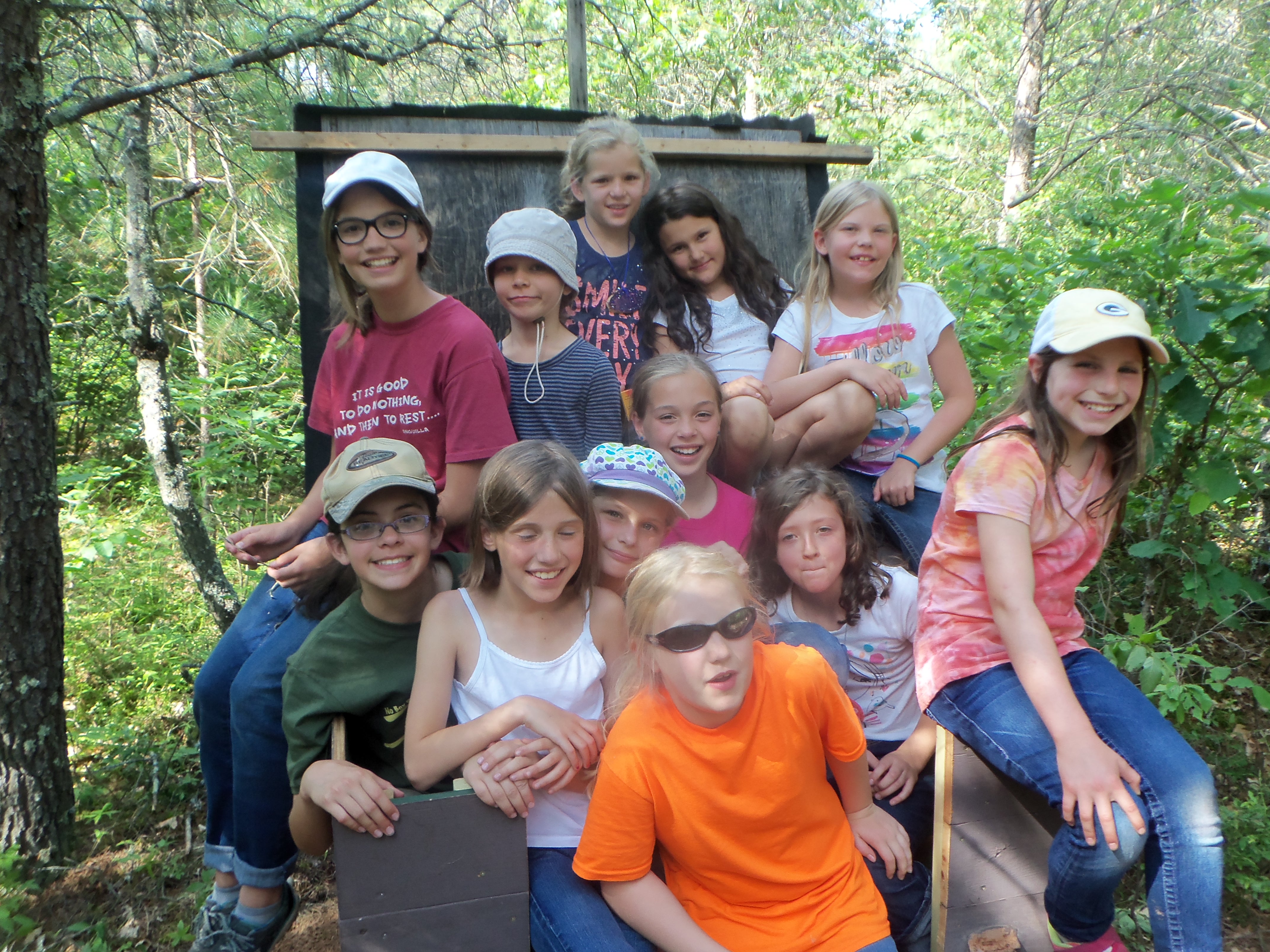
Being in a cabin at Swift Nature Camp can be especially beneficial to a child from a home-school background because it goes beyond basic socialization and builds a sense of comradery unlike any other. It is the perfect place to learn the true value of a community and develop a healthy respect for everyone in it. Perhaps the most under-appreciated aspect of summer camp is that it provides an environment in which traits and characteristics of future leaders can blossom. There are few things more gratifying in this line of work than watching a kid emerge as a leader amongst their peers.
Attending a residential summer camp can have benefits for home-schoolers years down the road, as well. The ability to adapt to a new environment and be comfortable way from home is an underrated skill. Young adults are routinely sent off to college without ever having been away from family for extended periods and can find it surprisingly difficult to cope. A study published on hap.org revealed nearly 70% of first year college students report sever homesickness to the point where it affected their coursework. A sleepaway camp is an ideal way to hone this skill and better prepare them for the future.
The right summer camp is beneficial for any child, but when a child comes from a homeschool environment they have an ever greater chance to thrive at overnight summer camp. Plus with SNC only 2 hours from Minneapolis /St. Paul Minnesota it is easy for parents to have a visit and see all the personal growth and fun their campers are having.
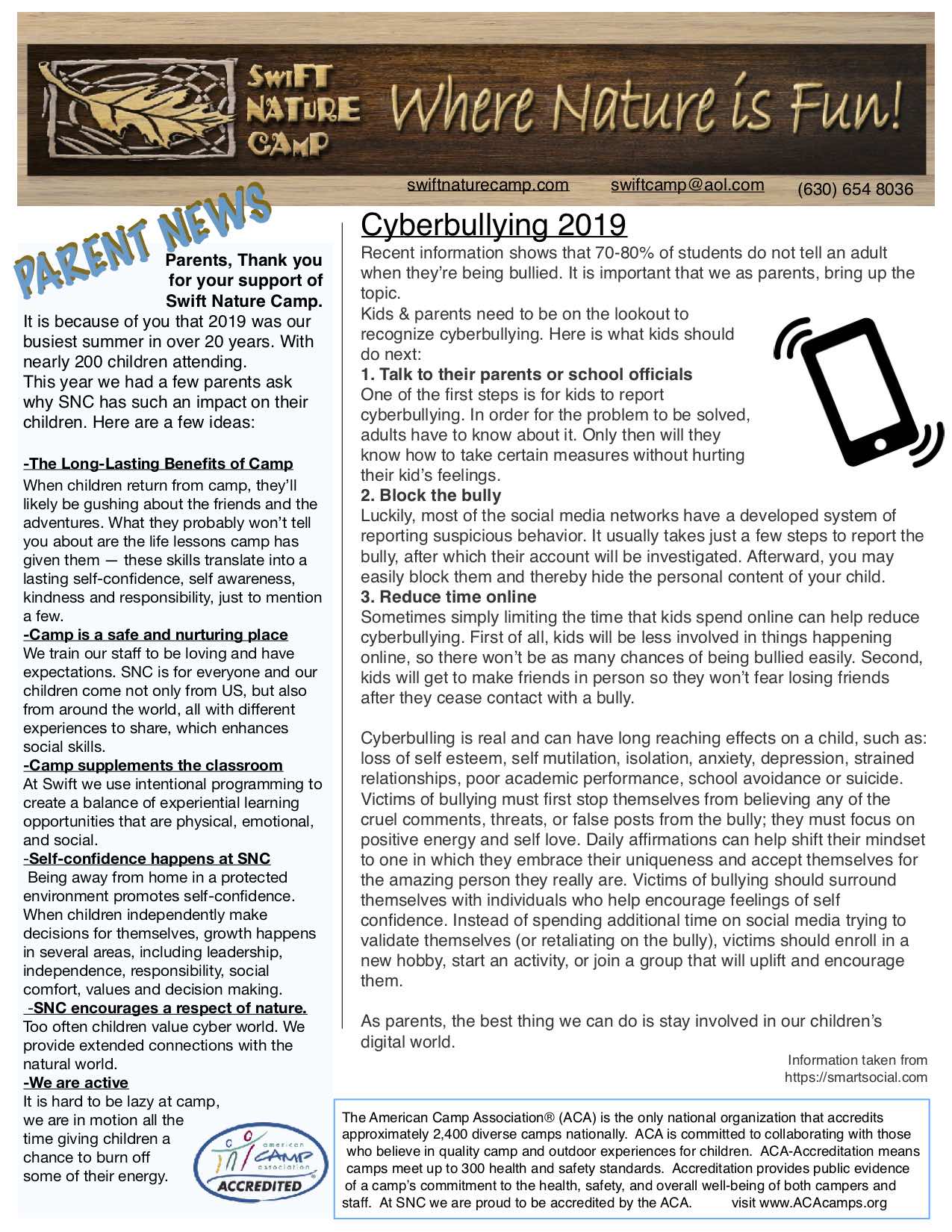
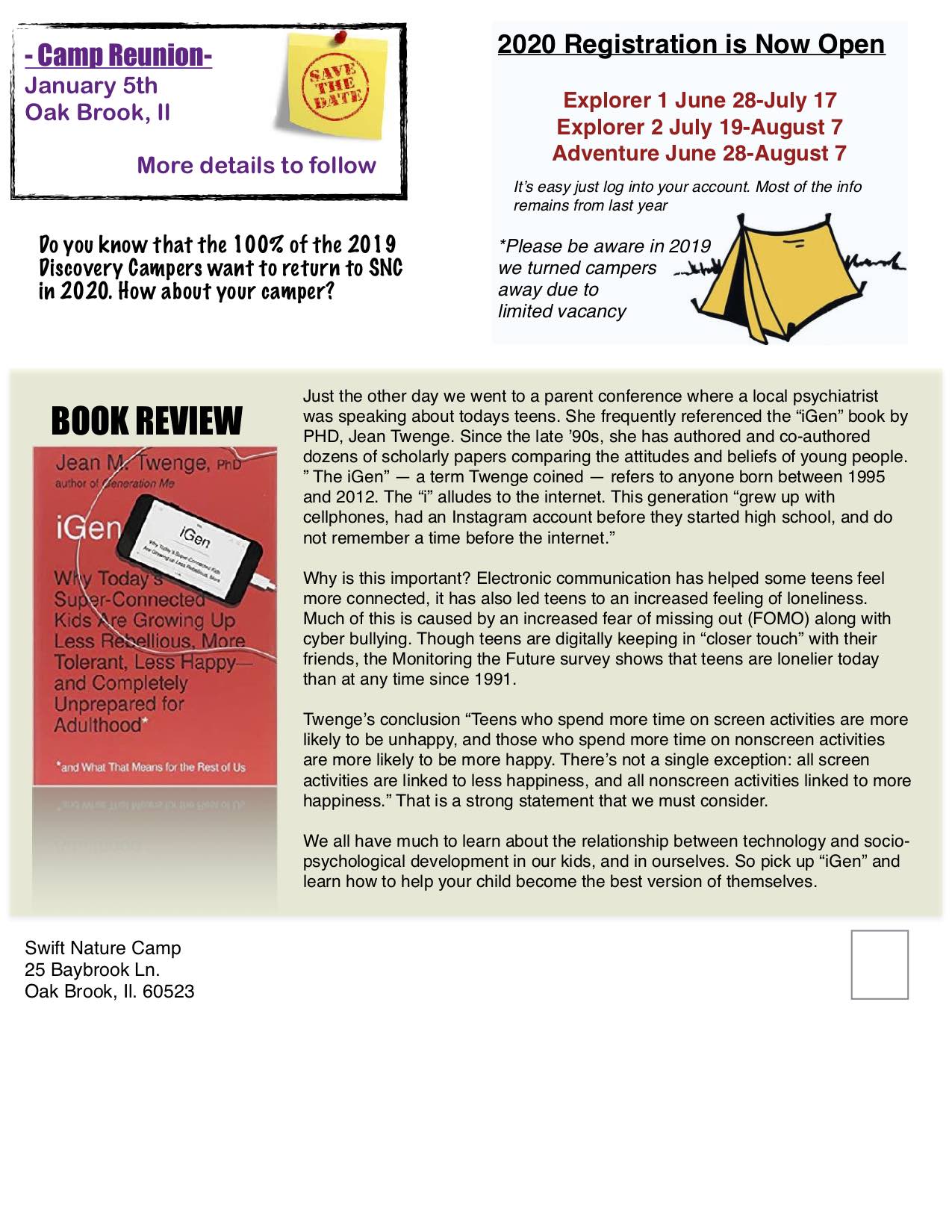





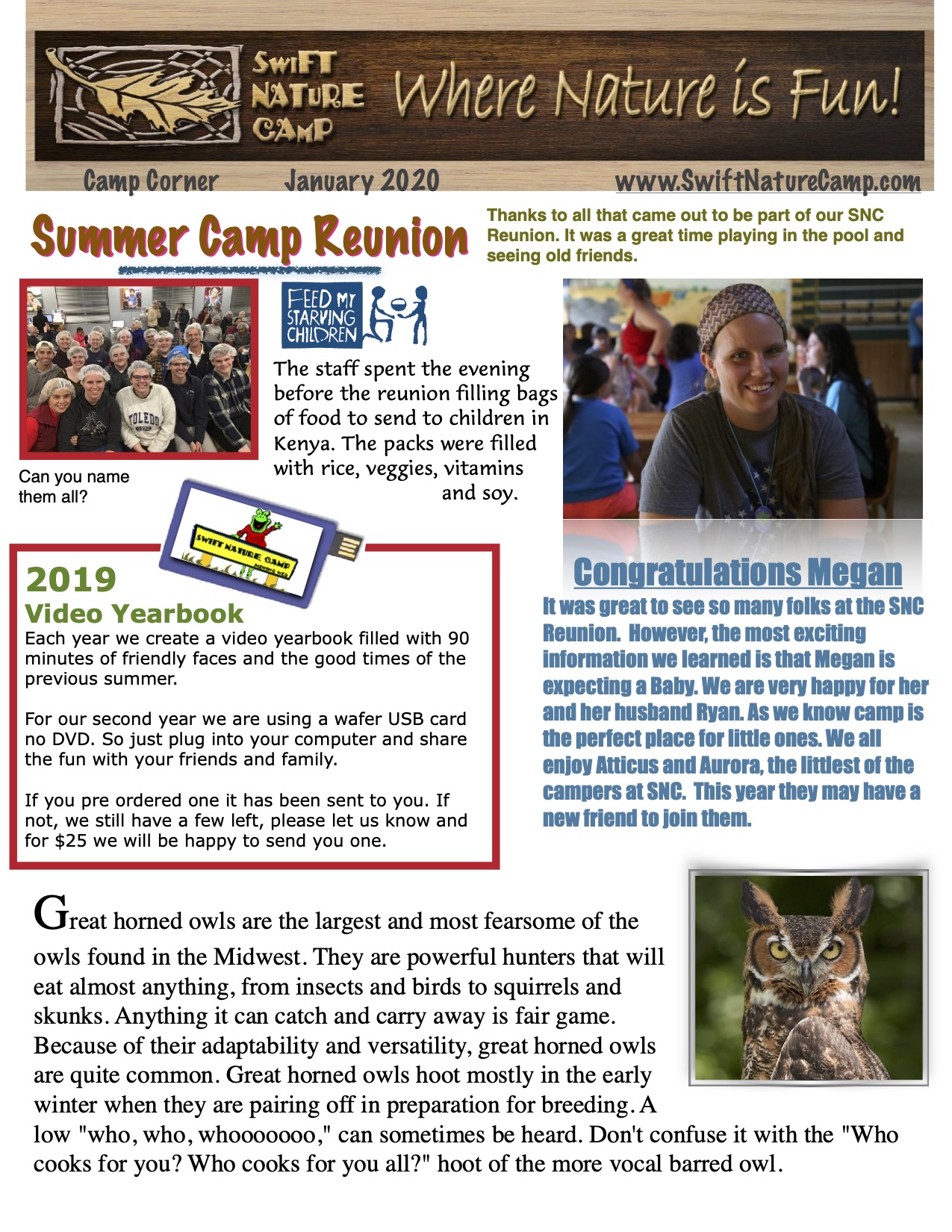
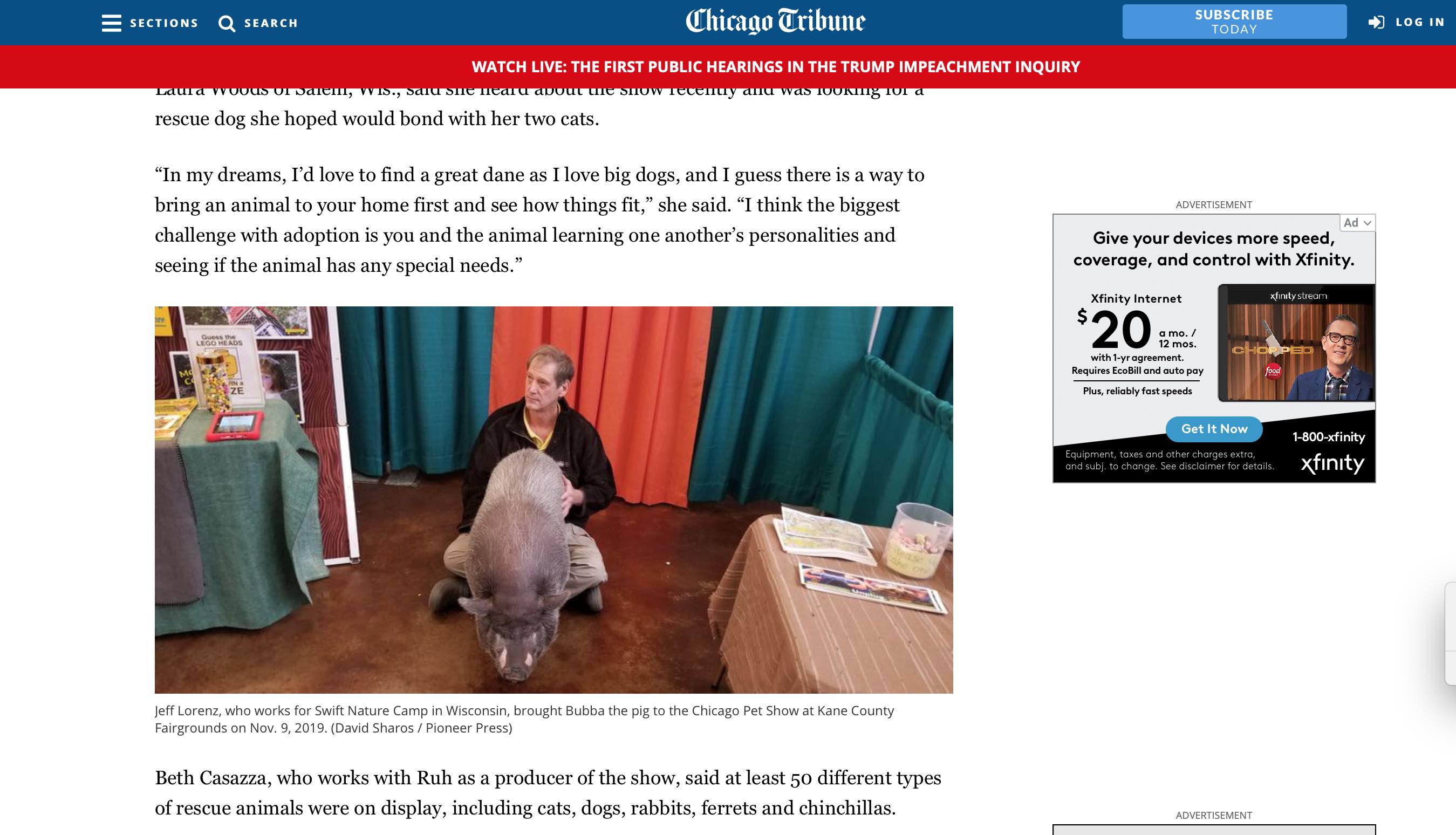
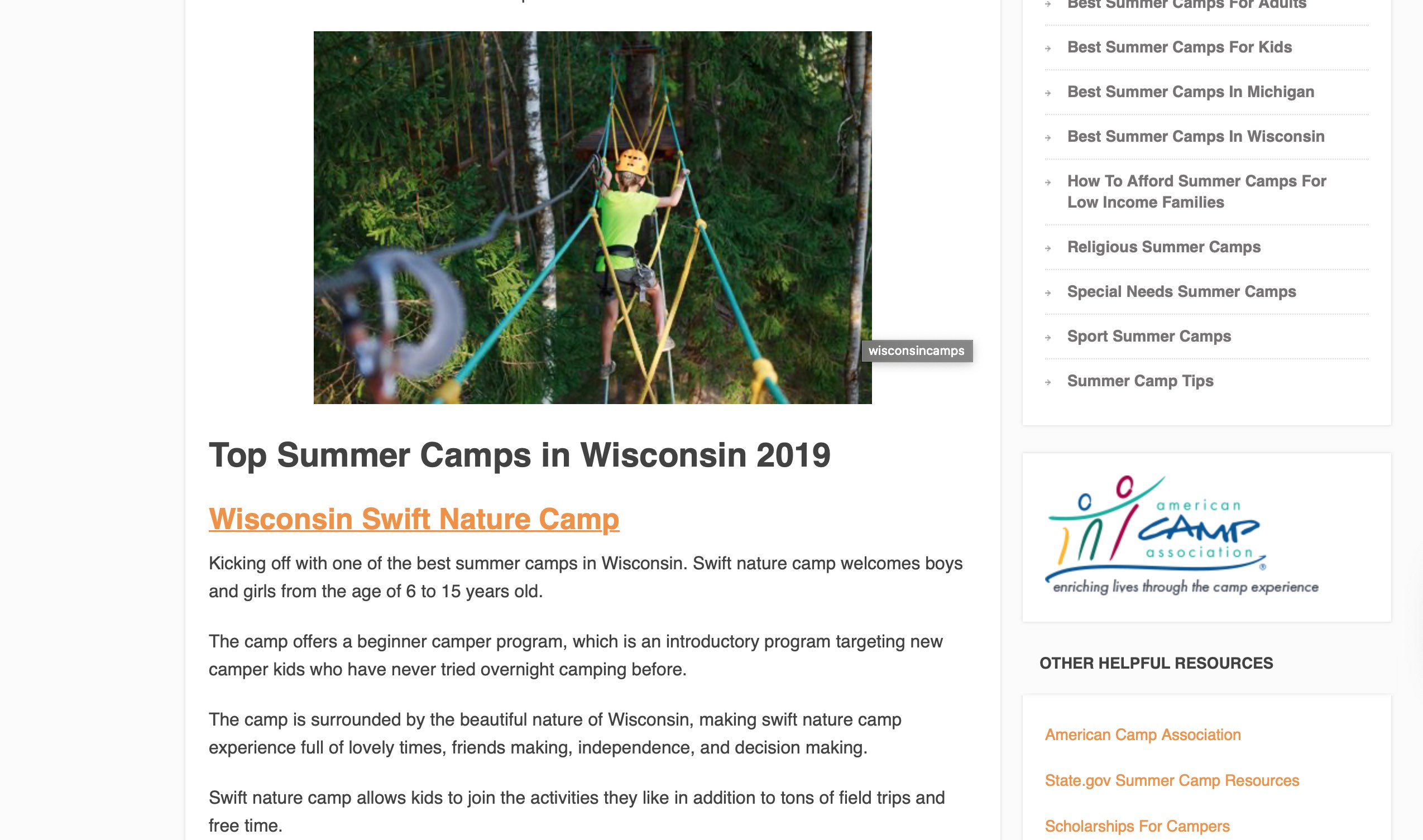





 Look who I found getting ready for Halloween. Do they need a costume?
Look who I found getting ready for Halloween. Do they need a costume?





